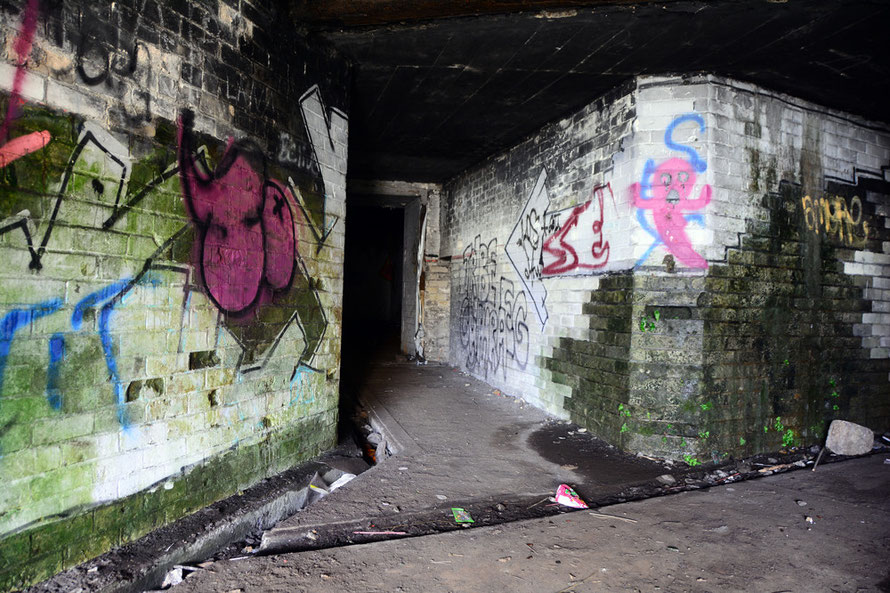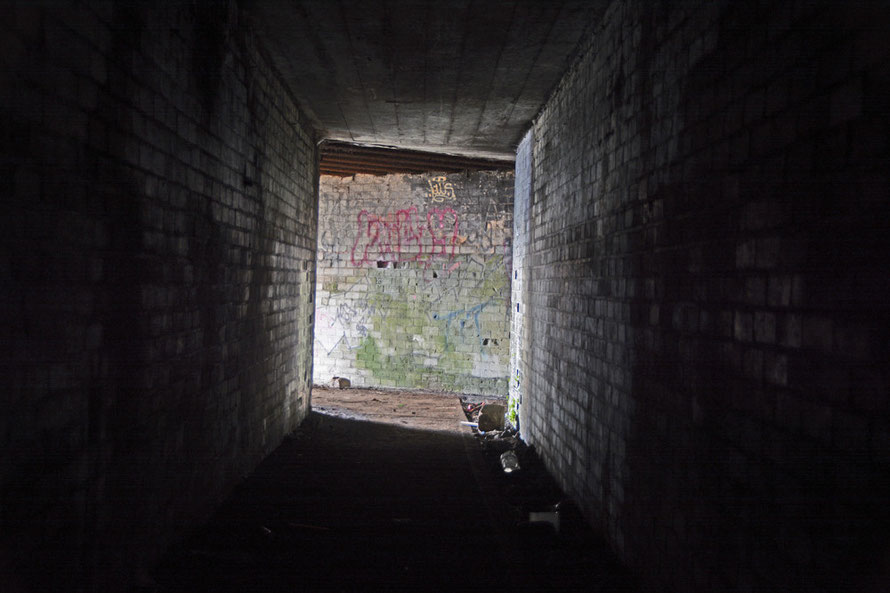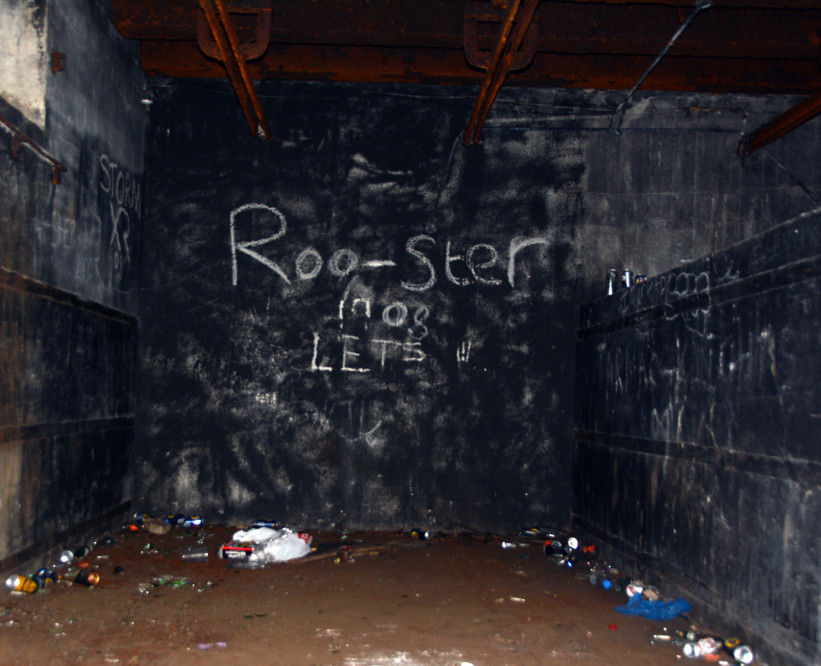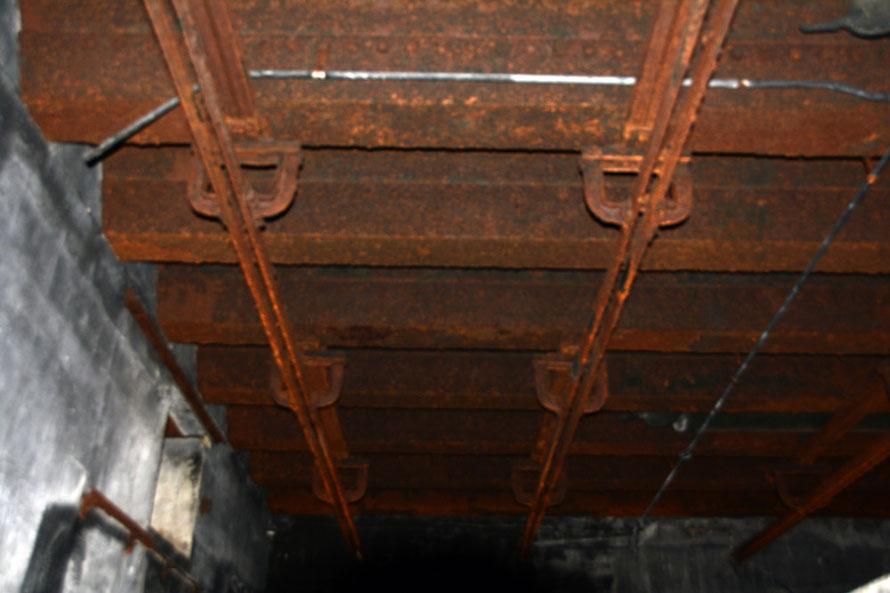It's Blipfoto's Derelict Thursday and I went up to the South Foreland to take some photos of the magazine constructed for the battery of four 9.2 inch guns. Two of the guns were supplied from 'a huge twin-humped surface magazine protected by a very thick capping of reinforced concrete.'
'Designated as 290 Coast Defence Battery, part of 540 Coast Defence Regiment, the site also housed the Regimental Headquarters alongside South Foreland Lighthouse. Underground facilities at the site (the mining of which commenced on 13th March 1941) included the Battery Plotting Room (BPR) and Fortress Plotting Room (FPR), with the FPR and RHQ sharing a tunnelled shelter. This complex was accessed by two sets of stairways that entered either end of the individual 100' long parallel tunnels, which were joined to each other by three 36' long chambers. To the rear of Guns 2 and 3 was the Battery Shelter itself, a vast underground complex with three protected stairway entrances leading down into two 150' long parallel tunnels interconnected by three 8' x 9', 50' long chambers that housed medical services and sleeping quarters.'
'By the end of the war, the four guns of South Foreland 9.2" Battery had expended a grand total of 2,248 shells between them, the majority in 1944 - a huge amount considering that enemy shipping losses credited to, and shared between, all of the Dover batteries during the Second World War was listed as a confirmed 28 vessels.'
On 12th February 1942 the battery failed to stop the return of the German warships Scharnhorst, Gneisenau and Prinz Eugen which had broken out from the French port of Brest with a
screen of destroyers, U Boats and Luftwaffe air cover and had headed up the Channel in an attempt to reach the safety of German waters. Thirty three shells were fired but no hits were made, the
poor weather making it impossible to see where the shells fell.
See Kent
History










Write a comment